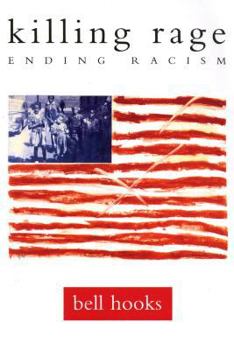Killing Rage: Ending Racism
Select Format
Select Condition 
Book Overview
"hooks's books help us not only to decolonize our minds, souls, and bodies; on a deeper level, they touch our lives." --Cornel West
More than two decades before Black Lives Matter and the #MeToo movement roiled America, bell hooks was declaring that abolishing racism and eradicating sexism must go hand in hand. In Killing Rage, one of our premier cultural and social critics brings the Black feminist's voice to bear on this country's public discourse on race, redressing the historical shunting of women's writing in this sphere to the side. In incisive essays, hooks addresses the wide spectrum of topics dealing with race and racism in the United States: friendship between Black women and white women; psychological trauma among African Americans; and internalized racism in movies and the media. hooks tackles the bitter difficulties of racism by envisioning a world without it, sharing a vision where "killing rage"--the fierce anger of Black people stung by repeated instances of everyday racism--offers not only a wellspring of love and strength, but also a realistic catalyst for positive change.
This seminal book is one Americans need today if we're to remain united tomorrow.
"An angry book that pulls no punches.... Her frankness and willingness to face up to the divisive issues that refuse to go away make her a voice to be reckoned with in the debate on race in America." --The New York Review of Books
Related Subjects
African American African-American & Black African-American Studies Biographical Biographies Biographies & History Biography & History Cultural Discrimination & Racism Ethnic & National Minority Studies Politics & Social Sciences Race Relations Social Science Social Sciences Specific Demographics Women's Studies





